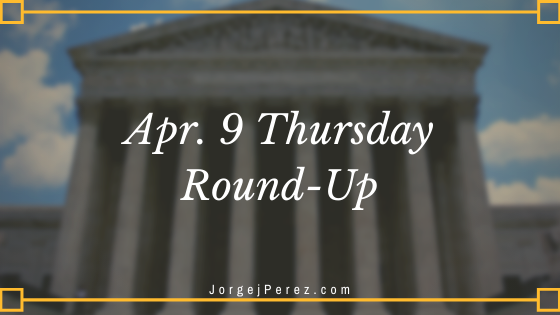In light of the global developments with COVID-19, the Supreme Court decided to alter its schedule and refrain from hearing oral arguments. This decision, as The Washington Times reporter Alex Swoyer describes, has caused some controversy as members of the public have made requests for the arguments to be heard one way or another, particularly through remote means to abide by the national restrictions on congregations and gatherings.
Another issue discussed by Edith Roberts in this round-up is that of the Wisconsin primary election. Despite concerns regarding social distancing and the spread of the coronavirus, the primary election for the state proceeded as scheduled; with limited polling places, health concerns, and high potential for exposure, the decision has been met with heavy criticism, but some individuals have defended the decision, as well.
___
Alex Swoyer reports for The Washington Times (via How Appealing) that “[a]ccording to a new poll, Americans want to see the court, which has been shuttered by the COVID-19 pandemic, back at work — remotely if need be — hearing oral arguments, including for highly watched cases concerning President Trump’s financial records.” At Reuters’ On the Case blog (via How Appealing), Alison Frankel talks to an advocate in one of the cases on the Supreme Court’s recently postponed April argument calendar, who is still “hoping arguments will take place” because they “are a critical part of the justices’ process of deciding cases.”At The Atlantic, Garrett Epps maintains that “[t]wo months is plenty of time for even those as busy as the justices to devise a way to hold oral arguments remotely—to show the nation that the courts remain stalwart in the face of terror” – “[a]nd if they can’t do their job, then by God, they should at least have the grace to explain to us why not.”
At The Economist, Steven Mazie notes that although “[t]he justices, wary of covid-19’s threat, have themselves suspended hearings for the first time since 1918,” in Republican National Committee v. Democratic National Committee, which blocked a lower court order extending the deadline for mailing absentee ballots in Wisconsin’s election because of the coronavirus pandemic, “[t]heir message to Wisconsinites during the global health crisis … was: never mind the pandemic, get on with your elections.” Andrew McCarthy argues at National Review that “[r]egardless of what one thinks about the ruling, … the Supreme Court is getting a bad rap[:] … It was not the justices’ decision to go forward with Wisconsin’s primary during a pandemic, [n]or is the Court any way responsible for the risks entailed by in-person voting.”
___
Read the rest on SCOTUSblog.com.

